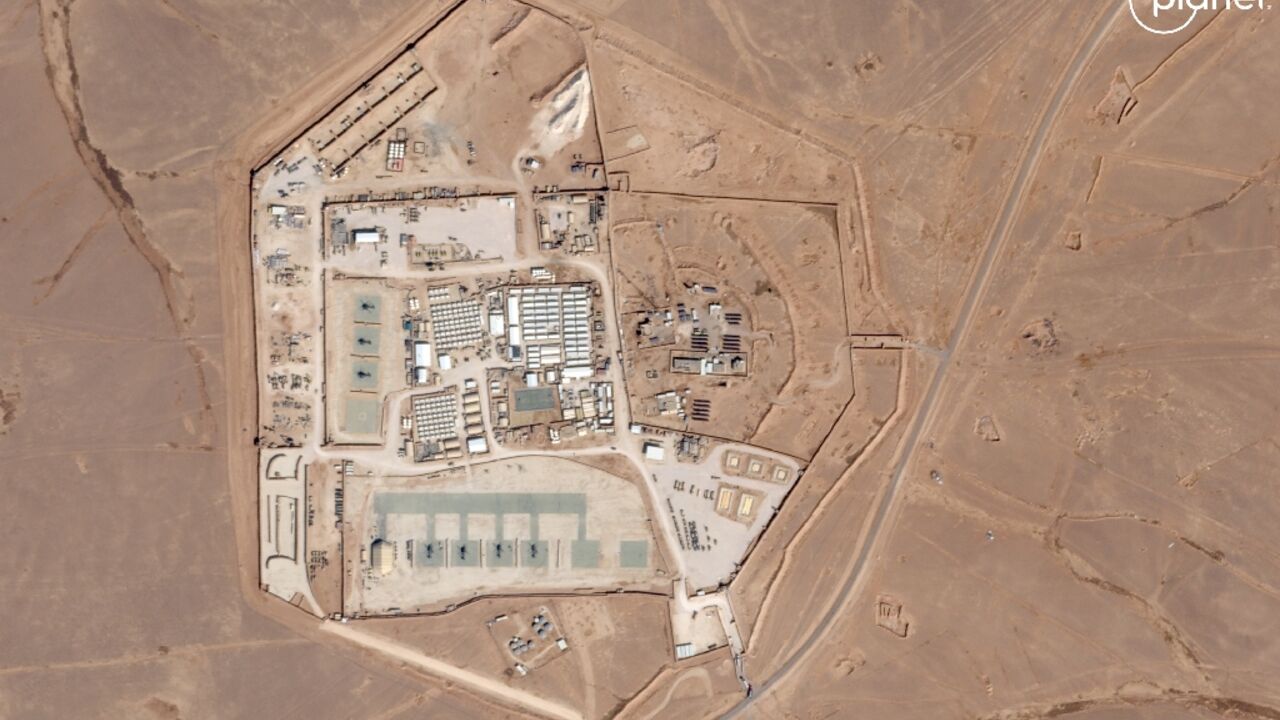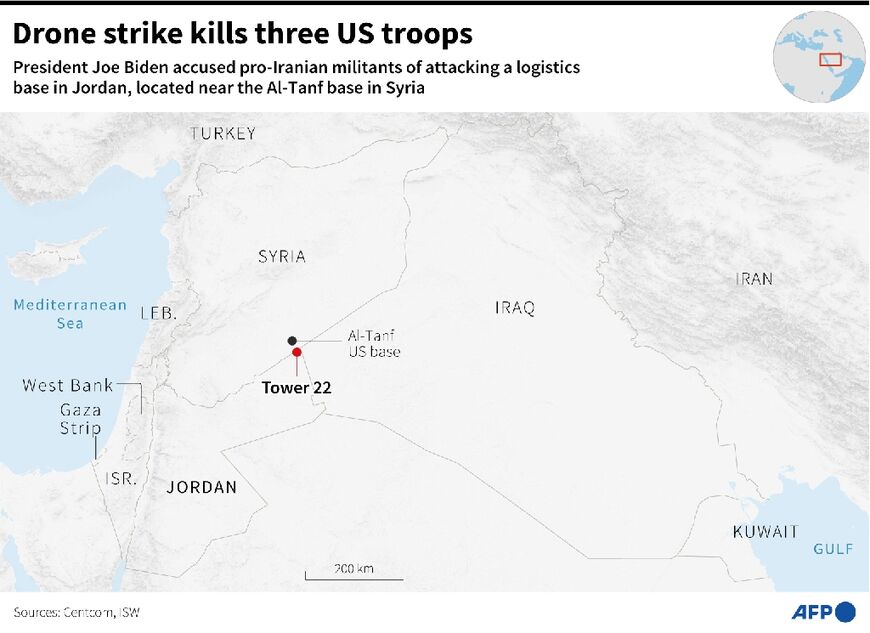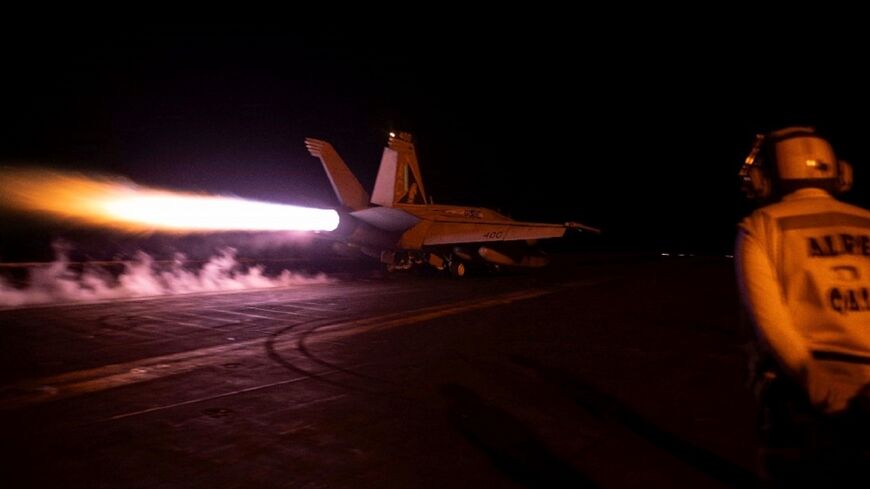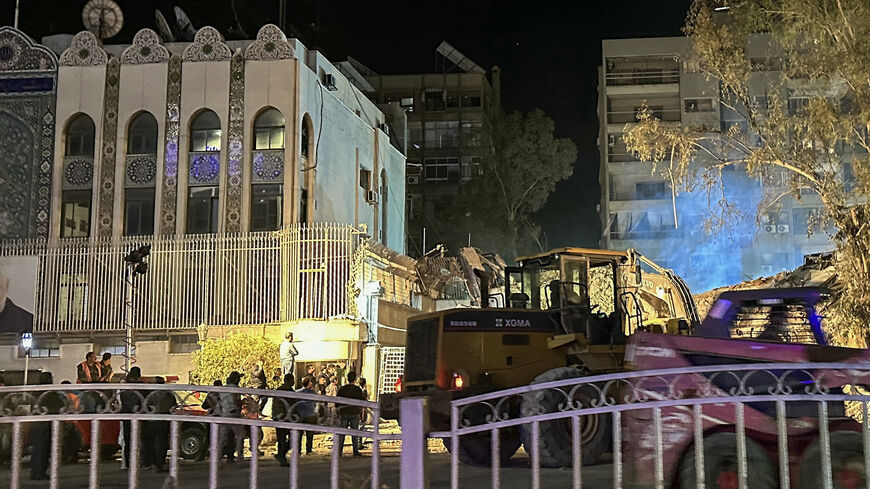US vows decisive response to deadly drone attack in Jordan

The White House vowed Monday to respond decisively to an attack in Jordan it blames on Iran-backed militants, in which a drone slammed into a military base and killed three Americans while troops were in their beds.
The casualties -- the first US military deaths in an attack in the Middle East since the Israel-Hamas war began -- raised fears of an escalating conflict, as fighting rages in Gaza and related violence plagues other parts of the region.
"We are not looking for a war with Iran," US National Security Council spokesman John Kirby told reporters Monday afternoon, adding however that the strike "was escalatory, make no mistake about it, and it requires a response."
His remarks came shortly after US President Joe Biden met with his national security team, including Pentagon chief Lloyd Austin and National Security Advisor Jake Sullivan.
Iran said it had nothing to do with the attack and denied US accusations it supported militant groups behind the Sunday attack on Tower 22, a remote frontier base in Jordan's northeast, near the borders with Iraq and Syria.
Kirby earlier told CNN that the US response would be "very consequential," but would not speculate on the options Biden was considering, including whether targets inside Iran were on the table.
American and allied forces were targeted in the region again on Monday, this time by rockets in Syria, though no injuries were reported, a US defense official said.
US and coalition troops have been attacked at least 165 times since mid-October -- 66 in Iraq, 98 in Syria and one in Jordan -- with "a mix of one-way attack drones, rockets, mortars, and close-range ballistic missiles," the official said.
Deputy Pentagon Press Secretary Sabrina Singh said the attack in Jordan wounded more than 40 people, adding to around 80 injured in previous violence.
- Attack struck living quarters -
She said the drone struck an area where living quarters are located on the base early in the morning, "so people were actually in their beds when the drone impacted."
US media reported Monday, citing unnamed officials, that the failure to prevent the strike was possibly due to confusion over whether the drone was hostile or a US aircraft returning to base.
Singh did not confirm those reports, saying that US Central Command was still investigating how the drone was able to get through.
There has so far been no claim of responsibility for Sunday's attack, but Singh said it has "the footprints of Kataeb Hezbollah" -- an Iran-backed Iraqi militant group the Pentagon has blamed for previous violence.
Saudi Arabia on Monday denounced the deadly strike "in the strongest terms," while Jordan, Bahrain, Egypt and Iraq have also condemned the attack.
A spokesman for Hamas said Sunday the Jordan attack is a message to Washington that the continuation of the war in Gaza "risks a regional explosion."
The escalating Middle East conflict poses a challenge for Biden in an election year, and Republican politicians were quick to take aim at him over the weekend.
The latest round of the Israel-Hamas conflict began when the Palestinian militant group carried out an unprecedented attack on October 7 that resulted in about 1,140 deaths, mostly civilians, according to an AFP tally of official figures.
Israel retaliated with a relentless military offensive that has killed at least 26,637 people in Gaza, most of them women and children, according to the territory's health ministry.
Anger over that campaign has grown across the region, stoking violence involving Iran-backed groups in Lebanon, Iraq and Syria, as well as Yemen.
There have been near-daily exchanges of fire between Hezbollah and Israel in Lebanon, while US forces are directly involved in Iraq, Syria and Yemen.
The United States and Britain have both carried out strikes targeting Yemen's Iran-backed Huthi rebels, who have been attacking Red Sea shipping in support of Palestinians in Gaza for more than two months.






